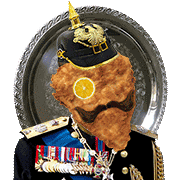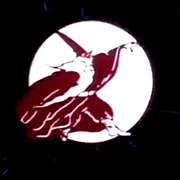|
Yooper posted:I'm looking to read about the Soviet tank design process pre-WW2. Can anyone recommend a good book? Expanded on this, are there any comparative books on the progress of tank technology? When was any of the pieces of the tank puzzle invented, by whom, and when did other nations follow? "Nation A has invented Thing X, this was a smart idea, good job." "Nation E is trying out Thing W, this is idiotic, they are completely on the wrong path." How did tank factories and production facilities function? This question again came to my mind from the recent T-44 article where it discussed problems finding a production facility that wouldn't disrupt T-34-85 production. From the blog I have gotten the impression that US was operating efficient production lines and USSR wasn't that far behind, but Germany didn't manage to reach the same level. If a factory was using line production, how serial or parallel were them. I would assume if you want to achieve high production you need several parallel and independish lines, there's a limit how much you can expand and increase workers on a single line. If you have ten production lines it would seem conceivable to switch one of them to T-44 production and reduce T-34-85 production by only 10%. And when that one line is running smoothly you start switching the next line.
|
|
|
|

|
| # ? Apr 20, 2024 05:19 |
|
Saukkis posted:Expanded on this, are there any comparative books on the progress of tank technology? When was any of the pieces of the tank puzzle invented, by whom, and when did other nations follow? "Nation A has invented Thing X, this was a smart idea, good job." "Nation E is trying out Thing W, this is idiotic, they are completely on the wrong path." I you haven't watched this, it's really great: https://www.youtube.com/watch?v=N6xLMUifbxQ&t=1574s
|
|
|
|
Nebakenezzer posted:WTF, why? It's not like anybody who's an actual threat to the nation of China can't get that info anyway. No free lunches. There have been enough basic intelligence screwups in history that I suspect there's at least once intelligence agency with at least one major misapprehension about the geography of China as we speak.
|
|
|
|
Nebakenezzer posted:WTF, why? It's not like anybody who's an actual threat to the nation of China can't get that info anyway. I have this suspicion that once you have that much power over a country, you just start doing things like this because you can.
|
|
|
|
Not everyone has access to US satellites. I would bet that China is more worried about a land offensive from Russia or India than from the US.
|
|
|
|
Those laws also pre-date satellites.
|
|
|
|
The Wikipedia article only covers laws from 2002, but lol if I'm going to go digging through Chinese legislation to try find out when it was first made illegal...
|
|
|
|
This looks like a book that would be my jam, as well as a few other people's ITT https://www.nybooks.com/articles/2021/01/14/hitler-conspiracies-antarctica/
|
|
|
|
Saukkis posted:Expanded on this, are there any comparative books on the progress of tank technology? When was any of the pieces of the tank puzzle invented, by whom, and when did other nations follow? "Nation A has invented Thing X, this was a smart idea, good job." "Nation E is trying out Thing W, this is idiotic, they are completely on the wrong path." This has been covered in much more detail by much better posters elsewhere in the thread, but the short answer is that, yes, the US and USSR were much better at rationalizing their industry and setting up highly efficient production methodologies than other countries—and it’s a very direct and explicit link; American industrial engineers were brought over by the Soviets to advise on assembly line production. (Also if you’ve never read the story of Soviet industry evacuating over the Urals it’s one of the true lesser-discussed epics of WWII—whole factories, as in everything but the bricks of the building, with all of their personnel and families, bundled up on train cars, taken beyond the reach of German bombers, and some had their production line back up and running within 48 hours). Germany in particular suffered throughout the war because they stuck with a workshop model of production where a team of workers would do all the jobs necessary to build a tank, working one hull at a time. One cool thing about the material conditions of especially the American war effort is that it was all exhaustively, exhaustively documented and recorded—if there’s a specific factory that interests you, chances are the actual industrial design documents and line plans are still out there somewhere—I’ve seen them for Boeing and Ford’s aviation plants, at least. The number of parallel lines was very much determined by the size of the factory but you’re absolutely right that multiple simultaneous lines is the only way to get those numbers of “new tank every x.y minutes.” Here’s a newsreel of M3 production in Detroit to give better visuals: https://m.youtube.com/watch?v=y8c6_ih2zF4 Note that a production line usually doubles back on itself; for plane factories you might see each unit start towards one wall along the outside of the factory for fuselage assembly and then turn back and head up the middle for wings and engines. There are a couple reasons why you can’t just flip a switch and change what a line is making: first, an industrialized factory is the pointy tip of a very wide pyramid—while factories back then certainly did much more to go from raw material to finished product than in today’s rat’s nest of subcontractors and parts suppliers, you need to think about a LOT more infrastructure than just the physical space of the assembly line itself—like at a basic level, changing just one line in a factory to a different product doubles the workload of the machine shop because suddenly they need to make twice the variety of parts. But speaking of the physical space of the assembly line, that’s a problem too: good industrial process design is very very hard, and requires a lot of finicky infrastructure. First there’s tooling and dies—before you start manufacturing tanks, you need to manufacture all the patterns from which the parts will be cut. What this actually means is taking all your big expensive machine tools, which are in very short supply for everybody but the US (and to a lesser extent Germany) and modifying them so only work in very specific ways dedicated to specific parts or operations. This is more technical and highly-skilled labor than operating the factory itself. Second, you have to retrain all the workers; both on the line and in all the supporting roles like quality check. So switching production was never undertaken lightly, because how much more useful will that new thing be vs two months of production of the old thing? HookedOnChthonics fucked around with this message at 19:18 on Jan 24, 2021 |
|
|
|
What I enjoy is the thought that the ford company out produced the entire nation of Italy during this period for all arms.
|
|
|
|
Myths of Soviet tank building: interbellum tanks Queue: Light Tank M24, German anti-tank rifles, PT-76 modernizations, ISU-122 front line impressions, German additional tank protection (zimmerit, schurzen, track links), Winter and swamp tracks, Paper light tank destroyers, Allied intel on the Maus , Summary of French interbellum tank development, Medium Tank T20, Medium Tank T23, Myths of Soviet tank building, GMC M10, Tiger II predecessors, Pz.Kpfw.IV Ausf.H-J,IS-6, SU-101/SU-102/Uralmash-1, Centurion Mk.I, SU-100 front line impressions, IS-2 front line impressions, Myths of Soviet tank building: early Great Patriotic War, Influence of the T-34 on German tank building, Medium Tank T25, Heavy Tank T26/T26E1/T26E3, Career of Harry Knox, GMC M36, Geschützwagen Tiger für 17cm K72 (Sf), Early Early Soviet tank development (MS-1, AN Teplokhod), Career of Semyon Aleksandrovich Ginzburg, AT-1, Object 140, SU-76 frontline impressions, Creation of the IS-3, IS-6, SU-5, Myths of Soviet tank building: 1943-44, IS-2 post-war modifications, Myths of Soviet tank building: end of the Great Patriotic War, Medium Tank T6, RPG-1, Lahti L-39, T-80 T-62 T-64 T-72A comparative trials, American tank building plans post-war, German tanks for 1946, HMC M7 Priest, GMC M12, GMC M40/M43, ISU-152, AMR 35 ZT, Soviet post-war tank building plans, T-100Y and SU-14-1, Object 430, Pz.Kpfw.35(t), T-60 tanks in combat, SU-76M modernizations, Panhard 178, 15 cm sFH 13/1 (Sf), 43M Zrínyi, Medium Tank M46, Modernization of the M48 to the M60 standard, German tank building trends at the end of WW2, Pz.Kpfw.III/IV, E-50 and E-75 development, Pre-war and early war British tank building, Available for request (others' articles):  Shashmurin's career BT-7M/A-8 trials Voroshilovets tractor trials T-55 underwater driving equipment  Light Tank T37 Light Tank T41 Oerlikon and Solothurn anti-tank rifles Evolution of German tank observation devices Ensign Expendable fucked around with this message at 16:47 on Jan 25, 2021 |
|
|
|
Ensign Expendable posted:Available for request (others' articles): Please add these to the queue. 
|
|
|
|
Ensign Expendable posted:Myths of Soviet tank building: interbellum tanks Could I please request the one about British tank building? I watched that newsreel of M3 tank production in Detroit and now I'm fascinated.
|
|
|
|
Added! As a bonus: my article on British trials of the Pz.Kpfw.IV is out today: https://warspot.net/279-second-fiddle
|
|
|
|
someone early in the thread mentioned that there’s been new scholarship in WWI studies since Guns of August was written. Anyone have a list of the “new classics” for wwi? Both broad and narrow focus welcomed VVVV Thanks! best bale fucked around with this message at 21:23 on Jan 25, 2021 |
|
|
|
best bale posted:someone early in the thread mentioned that there’s been new scholarship in WWI studies since Guns of August was written. Anyone have a list of the “new classics” for wwi? Both broad and narrow focus welcomed The Sleepwalkers: How Europe Went to War in 1914 by Christopher Clark is the new standard for a look at how and why WW1 happened. The book ends with the actual declarations of war, but it's the gold standard right now for a detailed analysis of how and why the war happened.
|
|
|
|
best bale posted:someone early in the thread mentioned that there’s been new scholarship in WWI studies since Guns of August was written. Anyone have a list of the “new classics” for wwi? Both broad and narrow focus welcomed For the causes of the war I would strongly advise pairing The Sleepwalkers with Margaret Macmillan's The War That Ended Peace; it comes from a completely different angle and draws some different conclusions which you may prefer to Clark's. (I also highly recommend Macmillan's superior and variously-titled work on the Paris conference of 1919.) There will never be One True Holy & Apostolic explanation of the causes of the war, and it's vital to take in alternative viewpoints. Anyway, this sounds like an excellent excuse to draw up a reading list for someone who's read a general history or two, or seen a few big documentaries, and wants to dig down a bit more without getting too deep in just yet. Pick the bit that sounds most interesting and have at it. N.b. no personal accounts here, they need their own post. If you're going to read in English you have to go for Forgotten Victory by Gary Sheffield; the first blast of the trumpet of the monstrous regiment of revisionists. Even if you're going to disagree with him about some of the conclusions he draws, you still need to read it. Most of what he says is accurate and well-founded and will help guide you away from the Blackadder telling of the war, and towards a more nuanced understanding of what was going on. The Western Front As ever, the Western Front is hugely over-represented and it's quite hard to go properly wrong. If you have a good tolerance for very dry dates-and-places recountings of grand strategy, and the doings of generals and politicians, everyone benefits from reading Robert A Doughty's Pyrrhic Victory, which is the grand strategy of the war from the French perspective. Which makes sense, as they were the primary strategic movers for the vast majority of the war. I can't recommend it highly enough for breaking people out of Anglocentric ways of thinking and conceptions of the war. You need a proper understanding of what the French thought they were up to; otherwise it's like reading about 1941-1945 with Eisenhower and Macarthur being occasional supporting characters instead of pivotal figures. It is very dry and academic, but it's worth persevering with. For the German perspective, no less important (again, it's like reading 1935-1945 and only barely thinking about Hitler), go with Alexander Watson's Ring of Steel, which will also introduce you to the German home front, the clusterfuck in Austria-Hungary, and the Eastern Front; and if you can cope with drier, more academic writings, Jorn Leonhard comes in with Pandora's Box. The last few years have also seen a wealth of works on under-appreciated elements of the Western Front. Martin Davies comes in with Conceal, Create, Confuse (the development of deception); Simon Jones with Underground Warfare (mining and sapping); John Glanfield with The Devil's Chariots (the invention of the tank and development of tactics). The Eastern Front Yes, there's an Eastern Front in this war, too. It's the direct cause of one of the two most geopolitically important consequences of the war, the Russian Revolution. Until very recently we were reliant on Norman Stone's ageing 70s The Eastern Front, weird cheap shots at Romanian officers and all, but he's now finally been knocked into a cocked hat by an excellent three-volume series from Prit Buttar (or Douglas Boyd's The Other First World War, which goes coast-to-coast in one volume, and naturally rather less detail). For a less imposing introduction to the sort of horror you're dealing with here, Graydon Tunstall's Blood on the Snow is short and snappy and focuses on the brutal fighting in the Carpathian Mountains in early 1915. Italy You've read Forgotten Victory to get away from the Blackadder view of the war. After that, Mark Thompson's The White War will take you to the Italian front and introduce you to General Luigi Cadorna, who genuinely did treat his men with levels of callousness far beyond what Blackadder could imagine, as he engages in twelve consecutive and entirely unsuccessful attempts to move his drinks cabinet six inches closer to Trieste and so turn the Adriatic Sea into an Italian pond. This front will also help you understand the post-war rise of OG Fascism on the backs of the Arditi and Gabriele D'Annunzio. Beyond Mainland Europe To get away from Europe entirely, the best starting point is probably Roger Ford with Eden to Armageddon. He briefly but comprehensively covers the three theatres of the war for the failing Ottoman Empire: Anatolia & the Caucasus; the modern-day Middle East; and Gallipoli. The section on the Anatolia/Caucasus campaign against the Russians is still the only English-language work I know of to attempt any kind of detailed recounting of the fighting in this area. The section on the Middle East is vital for understanding how that part of the world came to be how it is now. And there's also a nice unsentimental recounting of the disaster on Gallipoli without any unwanted over-the-top Anzackery dragging it down. Alternatively, go even further afield and join Edward Paice in west Africa for Tip & Run, on the war in modern-day Tanzania. This will introduce you to (among other things) a masterpiece of guerrilla warfare, a number of masterpieces of engineering, a lot of awful Boers, an attack thwarted by a storm of bees, naval supremacy being held by a flat-pack steamer (which is still sailing today) with a really large gun on it, and Winston Churchill quite literally trying to set a river on fire. It's such an odd place, even Portugal manages to be relevant somehow. Tiddly Up-Up-Up If there's anyone who likes planes and wants to go into military history with a popular bent, we're still waiting for a comprehensive bestseller about the birth of aerial warfare. Peter Hart has more than one volume of oral histories from the Royal Flying Corps. However, if you can slog through John H Morrow's pricey, vital, yet surpassingly boring The Great War in the Air, it's indispensible for showing how the situation went from the occasional recon aircraft with pilots waving at each other in 1914, to the birth of the modern fighter (Sopwith, Fokker, and SPAD) and bomber (Caproni series, the only good thing the Italians contributed), with constantly-evolving tactics to match. It's a fascinating subject, and urgently deserves attention from someone who can actually string a sentence together. Big Boats Go Bang Robert Massie. Castles of Steel. It's about more than really big ships that do gently caress-all except crash into each other during gunnery practice. The British Official Naval History is also freely available on the internet and is shockingly readable and entertaining, and you'll find out about all kinds of fun little minor actions and epic tales of derring-do as the tiny German colonial navy tried to escape the RN for as long as possible. Genocides And finally. Everyone should know about the Armenian Genocide, the event for which the word "genocide" was coined. Not least because the modern Turkish state has decided to go all-in on denying there was a genocide, to the point where scholars of the genocide have been murdered or forced to flee Turkey; and it'd really annoy a lot of people who deserve to be annoyed if you find out as much as possible about it. Survivors: An Oral History of the Armenian Genocide will help get over what kind of villainy we're dealing with here; for more, Taner Akcam's life's work has been documenting the genocide and the intentions of its architects in painstakingly-evidenced detail. The great Jewish writer S Ansky also wrote a memoir of his time on the Eastern Front working to relieve the suffering of civilians, as each side freely committed war crimes in turn, and particularly targeted local Jewish populations for anti-Semitic violence. It was translated into English as The Enemy at his Pleasure, and these events would undoubtedly be far more notorious but for the surpassing industrialised crimes that would follow a generation later. Trin Tragula fucked around with this message at 00:55 on Jan 26, 2021 |
|
|
|
Trin Tragula posted:The Eastern Front Can I recommend one? War Land on the Eastern Front: Culture, National Identity, and German Occupation in World War I by Vejas Liulevicius. This is not the usual "maps and arrows" military history of the Eastern Front of WWI. Instead, it is a survey of the administrative policies Germany put in place in occupied territory in the east, particularly Lithuania and Poland. It covers things like food rationing, exploitation of timber resources, the relationship between civil and military laws imposed by the Germans, German policy on vaccinations and health considerations, the process for surveying the roads for transportation networks... Sounds dull, right? It isn't. This is one of the most insightful books I have ever read. It completely re-shaped my view of WWII. Huh? Aren't we talking about WWI here? Well, yes, we're talking about WWI. But the more I study WWI, the more I come to understand WWII. The premise of this book - one that I agree with - is that the experience of the German occupation of Russian territory in WWI decisively shaped the Nazi attitudes towards the East, the critical theater of WWII. From the book’s introduction: quote:For German soldiers, the eastern front-experience began with the crucial first impressions and encounters, shaping how they regarded the East. Unexpected military triumphs in 1914 and 1915 brought German armies into possession of vast territories in northeastern Europe, along with the Baltic coast. Mental pictures of a unitary and monolithic Russian empire, which most Germans held before the invasion, broke down before the varied and chaotic scene they now faced, a patchwork of distinct “lands and peoples.” The occupiers confronted a strange landscape and foreign populations, with unfamiliar traditions, cultural identities, and histories. Backdrop to all of this was the devastation of war, leaving the territories in desperate chaos, heightened by the frantic “scorched-earth policy” of retreating Russian armies. Seeing the East for the first time during the war, in a whirlwind of human misery, dirt, disorder, disease, and confusion, produced visceral reactions in soldiers. These horrible sights seemed to be ordinary, abiding, and permanent attributes of the East they now surveyed, not just examples of universal human sufferings under the lash of war. Yet the destruction and disarray held out an alluring possibility to officials. The army could bring order to these lands, making them over in its own image, to realize a military utopia and establish a new German identity charged with a new mission of bringing Kultur to the East. Think this had much influence on the conduct of Barbarossa a generation later?
|
|
|
|
gently caress, dude. You just single-handedly tripled my want-to-read list. Cheers. 
|
|
|
|
Cessna posted:Can I recommend one? This is a really, really goddamned good book and is basically required reading if you want to get a grip on what happened out there during WW2. One I'll recommend myself, it's a bit of a niche book but remains one of my favorites on WW1: Home Fires Burning: Food, Politics, and Everyday Life in World War I Berlin by Belinda J. Davis. It digs into the German home front in WW1 and in specific the way that women - including a fuckload of working class women - in Berlin directly affected high level military and political policy. It's really, really good for showing a home front that most Anglophone audiences get very little exposure too, highlighting just how much the wartime privations hosed with the Germans, and making very clear why the Nazis were so hell bent on keeping the standard of living up for the civilian population during the war. Pair that with Hitler's Beneficiaries and a lot of Nazi economic policies and how they used the Holocaust to undergird wartime non-Jewish civilian welfare begin to come into focus.
|
|
|
|
WW2 Data The final German update (for now) is out! We've got a duo of signal grenades for pistols, but how exactly did they work, and what did they contain? How do you change a Multi-Star signal cartridge's pattern? What happens to any that aren't used? All that and more at the blog! (After this, I'm going back to my Russian catalog, specifically on the Satellite side of things, to work on the available Czech data I have)
|
|
|
|
|
|
|
|
Cyrano4747 posted:One I'll recommend myself, it's a bit of a niche book but remains one of my favorites on WW1: A World at Arms goes a bit into how the Dolchstoszlegende affected so much of Nazi Germany's strategic thinking. The main take aways the Nazis had were that they needed to maintain the standard of living for German civilians as much as possible since that's what led to the surrender in WW1, that they needed to get rid of the Jewish population for the same reason, and that they underestimated the Americans from a military and economic perspective since they weren't seen as being decisive.
|
|
|
|
Is there a good book on the chaos of 1919-20 in Germany with freikorps vs socialists and stuff?
|
|
|
|
Cessna posted:The premise of this book - one that I agree with - is that the experience of the German occupation of Russian territory in WWI decisively shaped the Nazi attitudes towards the East, the critical theater of WWII. From the book’s introduction: This is a World War II book and not a WWI book, but have you ever read Hitler's Empire by Mark Mazower, and, if so, what did you think? He makes the argument that a lot of WWII German occupation policy draws from earlier German colonial policy, both in their brief overseas empire but more within German controlled Poland.
|
|
|
|
Peter Englund's The Beauty And The Sorrow is also a good read: it's a collection of 19 mini-biographies of various people doing WW1 stuff in different places. So you get a Dane who's in the German army, a British nurse in the Balkans, a Baltic noblewoman and other assorted figures that give you an insight into various conditions during the war. And since it's available in English, you do not need to learn Swedish to read it, unlike his 30YW work.
|
|
|
|
Poilu The World War I Notebooks of Corporal Louis Barthas, Barrelmaker 1914-1918 I don’t see this book mentioned very often, but it’s fantastic. Memoir of French infantryman who fought all 4 years which was finally translated into English in 2014
|
|
|
|
Epicurius posted:This is a World War II book and not a WWI book, but have you ever read Hitler's Empire by Mark Mazower, and, if so, what did you think? He makes the argument that a lot of WWII German occupation policy draws from earlier German colonial policy, both in their brief overseas empire but more within German controlled Poland. That's more or less the scholarly consensus at this point. Mazower's fundamental but it's something you'll find scattered around the literature. Isabell Hull's Absolute Destruction: Military Culture and the Practices of War in Imperial Germany is another key part of that argument. She traces how the colonial rebellions in Africa (in particular the Herero Genocide) shaped attitudes within the Imperial military command and in turn fed into a lot of WW1 stuff. Basically none of the poo poo that happened in the 40s came out of a vacuum, and people weren't reinventing the wheel when they were coming up with prejudices, policies, and agendas.
|
|
|
|
https://twitter.com/AtomicAnalyst/status/1354096176778387456 The March 1 shot was Castle Bravo
|
|
|
best bale posted:Poilu The World War I Notebooks of Corporal Louis Barthas, Barrelmaker 1914-1918 I mean he sources quotes constantly from our sardonic barrel maker and his current avatar is of him now.
|
|
|
|
|
SeanBeansShako posted:I mean he sources quotes constantly from our sardonic barrel maker and his current avatar is of him now.
|
|
|
|
Still fighting the good cause, I really need to get that book.
|
|
|
|
|
best bale posted:Poilu The World War I Notebooks of Corporal Louis Barthas, Barrelmaker 1914-1918 I'd argue that it's one of the most mentioned books in this thread but yes it is very good.
|
|
|
|
Kaiser Schnitzel posted:Is there a good book on the chaos of 1919-20 in Germany with freikorps vs socialists and stuff? The Vanquished by Robert Gerwarth covers it. The book as a whole is more about the various conflicts happening through out Europe but it does cover the conflicts with the freikorps in Germany and other countries.
|
|
|
|
Seconding and thirding Poilu. I got it for christmas and finally chewed my way through it. Great, great stuff.
|
|
|
|
zoux posted:https://twitter.com/AtomicAnalyst/status/1354096176778387456 Haha, wow. I assume everybody there would have been super embarrassed to have the president witness a nuke test a couple ordered of magnitude bigger than planned.
|
|
|
|
Nebakenezzer posted:Haha, wow. I assume everybody there would have been super embarrassed to have the president witness a nuke test a couple ordered of magnitude bigger than planned. 2.5 times is 2 orders of magnitude? (Tsar Bomba x10 would certainly have been....impressive, mind. And rather lethal to Eisenhower one assumes)
|
|
|
|
Assuming time machines or massive geopolitical shifts: would you guys go to a nuclear test shot if you could? https://twitter.com/AtomicAnalyst/status/1233463598703312896 Also the Wellerstein post linked in this tweet demonstrates how, well reckless, the US was, it's typical 1950's nuclear mad scientist poo poo quote:In retrospect the entire “event” seems to have been utterly avoidable as a radiological disaster, even with all of the uncertainties about yield and weather. It’s cliché to talk about nuclear weapons in terms of playing with “forces of nature beyond our comprehension,” but I’ve come to feel that BRAVO is a cautionary tale about hubris and incompetence in the nuclear age — scientists setting off a weapon whose size they did not know, whose effects they did not correctly forecast, whose legacy will not soon be outlived. zoux fucked around with this message at 01:28 on Jan 27, 2021 |
|
|
|
best bale posted:I don’t see this book mentioned very often, but it’s fantastic brb, writing a deeply offended six-page letter to Le Midi Socialiste
|
|
|
|

|
| # ? Apr 20, 2024 05:19 |
|
feedmegin posted:2.5 times is 2 orders of magnitude? I am zoux posted:Assuming time machines or massive geopolitical shifts: would you guys go to a nuclear test shot if you could? Absolutely.
|
|
|
















































